Returning to Connecticut Stages in ‘To Kill a Mockingbird’
By FRANK RIZZO
For 65 years Richard Thomas has been a working actor, first making his Broadway debut when he was a seven-year-old in 1958’s “Sunrise at Campbell,” later earning an Emmy as John-Boy in the ‘70s TV’s hit series “The Waltons,” and then following his adult life with scores of performances on TV, film and stage. His well-modulated voice is a familiar one for many having narrated more than 340 audio books.
But among his most fulfilling experiences on stage were in a quartet of leading roles at Hartford Stage in the ‘80s and ‘90s: “Hamlet,” “Richard III,” “Peer Gynt” and Edward Albee’s “Tiny Alice.”
The Tony Award-nominated actor (“The Little Foxes”) returns to the state—and to the stage—to star as Atticus Finch in Aaron Sorkin’s stage adaptation of Harper Lee’s classic novel, “To Kill a Mockingbird.” Thomas headlines the national tour of the acclaimed Broadway production which plays Hartford’s The Bushnell June 27 to July 2.
Thomas sat down with Seasons Magazines in a Zoom conversation to catch up and chat about his long career, taking on an iconic character and about Connecticut audiences.
Seasons: There’s something just so right—given where your career took off with the TV series and that role—about you becoming Atticus Finch.
Richard Thomas: I was telling someone the other day that here is one icon—and I don’t mean me personally, but rather then character of John-Boy—playing another icon, Atticus Finch.
S: Both “The Waltons” and “Mockingbird” are set in the South in the ‘30s. Did you see a kinship between these two roles?
RT: They have a similar feel and texture and there’s a connection in terms of sensibility and, of course, Southerness. But the characters have very different emotional makeups. John-Boy was a questing young artist who belongs in his community but also knows that for him there’s something beyond it. Atticus is basically a real estate lawyer, very much content with his place in his community. But they are both good and decent figures.
S: Aaron Sorkin’s version of Atticus is different than the one portrayed by Gregory Peck in the 1962 film. By the way, did you ever meet Mr. Peck in your long career?
RT: I only met him once at some function in Los Angeles and I remember him being always the most gracious of men. And he was a lot taller than I imagined.
One of the great things Aaron has done with this play is that he’s taken Atticus off the pedestal. This is not a perfect man. He’s a good and decent person and has compassion, humility and feelings for other people, but he has a lot to learn—and he’s teachable. Aaron has given him a wonderful human journey and I think the audience can come closer to him emotionally.
S: Was there an Atticus Finch in your life, someone who made you think in moral ways?
RT: I can’t say I have. My parents were enormously important moral forces in my life. I was an avid reader so when you’re reading classic literature these novels have a strong moral pull.
S: How are audiences responding to your Atticus?
RT: Atticus Finch is one of these literary characters that has a life of its own and I think people think of him as being a real historical person. That means when people come to the theater they bring their Atticus with them, whether it’s from the novel or from the film—which is a great thing. That’s what happens when we encounter a classic. But hopefully a few minutes in, that falls away and you have the experience of the story as we’re telling it.
S: As an older actor, you’re now doing some of the best work of your career in TV’s “Ozark,” “The Americans,” “Billions,” and on stage in “12 Angry Men” and “Incident at Vichy,” just to name a few terrific roles in the last few years.
RT: I’ve been deeply satisfied by the work that’s come my way. Some of this kind of started with my friend Joseph Weisberg, who produced [the television series “The Americans”] and invited me to play Frank Gaad, which is such counter-intuitive casting. It was a wonderful vote of confidence which set me on a different path.
S: Of course anyone seeing you at Hartford Stage years ago knew well of your range.
RT: Hartford is always a homecoming for me. I have to say some of the happiest and most artistically fulfilling times of my entire career happened on that stage; audiences here are so good, so beautifully prepared for the plays, and the theater’s board was wonderful, and working with [director] Mark Lamos was a soulmate kind of collaboration. Hartford is very precious to me in my memories of my career.
S: You also played Westport Country Playhouse.
RT: I played there twice, once when I was 10 in a play called “Critic’s Choice” with Hans Conried, and then as an adult in “Who’s Life Anyway?”
S: At a theater that is now associated by Joanne Woodward…
RT: …Who played my mother on the [1969] film “Winning” which also starred Paul [Newman].
S: His last great role was as the stage manager in “Our Town” at Westport and later on Broadway. That’s a role that suits you. Another moralistic role.
RT: That is a good role for me and maybe it’s a role that one day I’ll be able to play. I love that part and that play. I think Mark [who is now artistic director at Westport] would do a beautiful production of that play.
As an actor, if you’re lucky enough to keep working through all your stages of life, there’s a wonderful richness that comes if you’re able to play really good parts as an older man. It’s a beautiful relationship you have to the work. I can’t quite describe it. But I’ll tell you one thing. As I get old, it’s wonderful to have these challenging roles which keeps me young inside. I’m on the road on tour and doing eight shows a week but I’m doing it. It’s tiring but oh-my-God I can still do it. I couldn’t be happier doing this magnificent part and telling this story.
It’s a good story to tell. It’s an American story.
It’s our story and it speaks to our aspirations—and how we fall short.
Sometimes we forget there’s decency and compassion out there.
Yes, exactly right. It’s been a privilege to tell this story right now across the country.




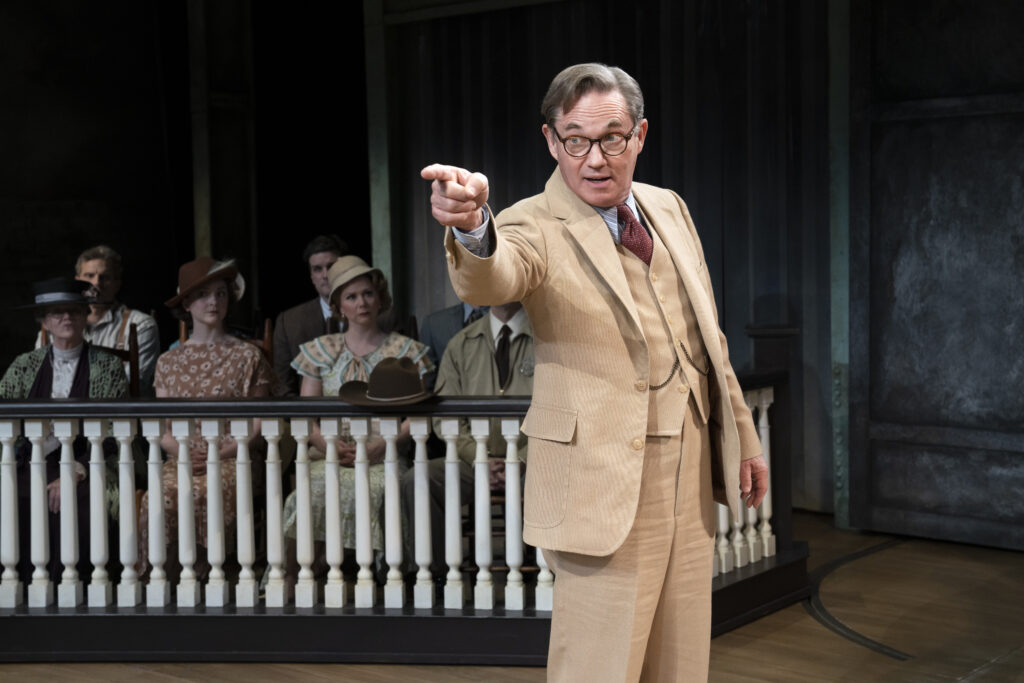


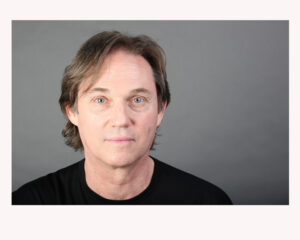

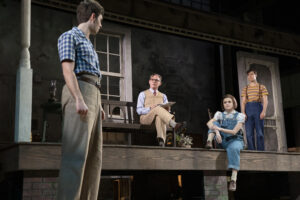
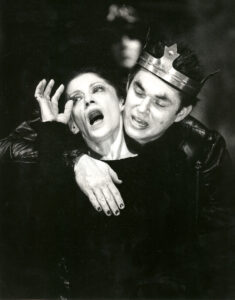
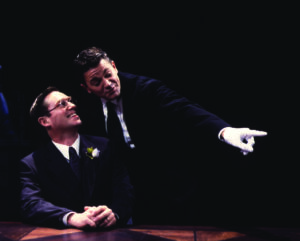
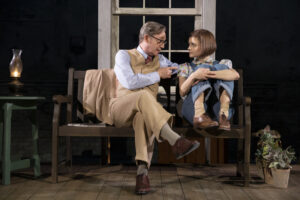
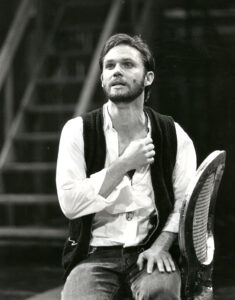


More Stories
Colin McEnroe: A Half Century of Covering Connecticut with Wit, Curiosity and Heart
Fall Arts Preview: Emus, Foxes and Eric Clapton, Too
Wadsworth Atheneum Museum of Art: (Un)Settled Art Exhibition Moves Beyond Classic Landscapes